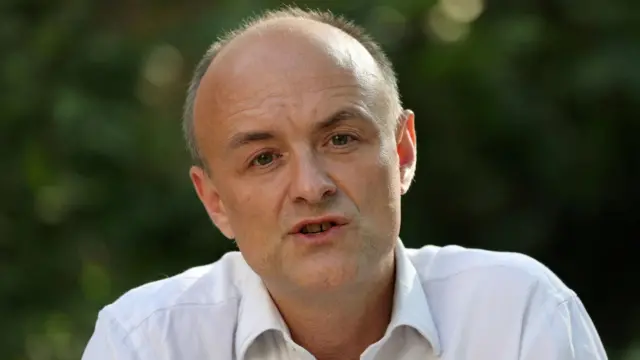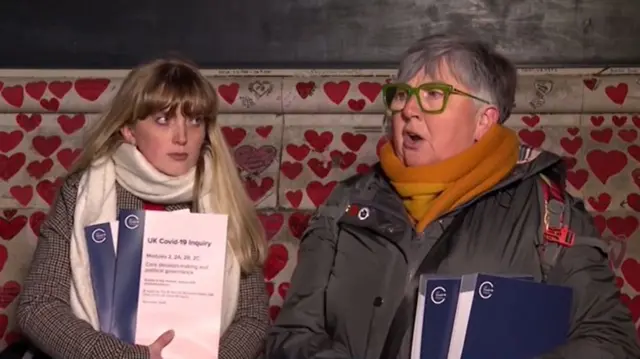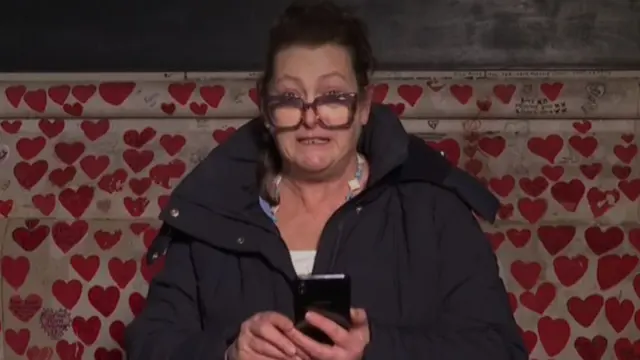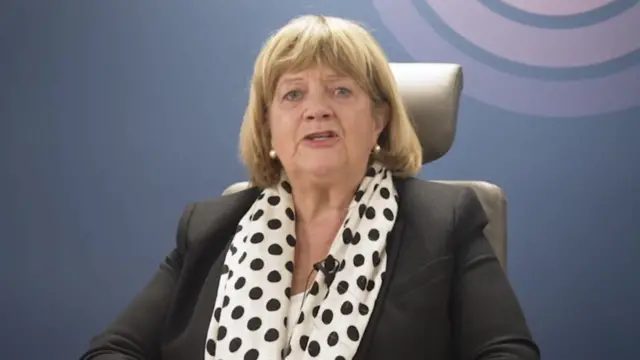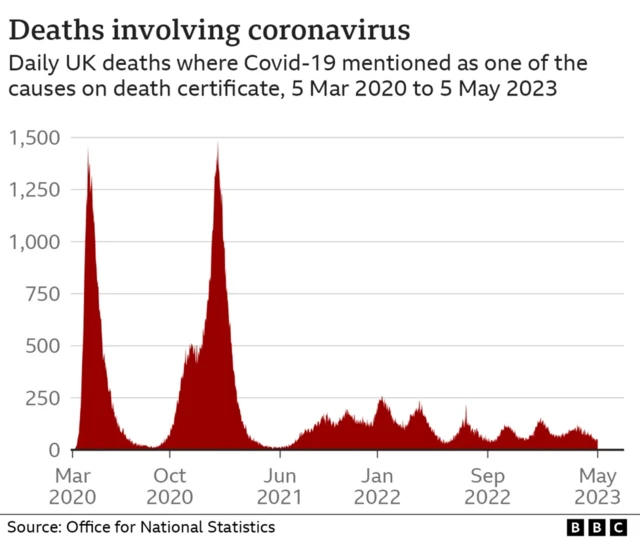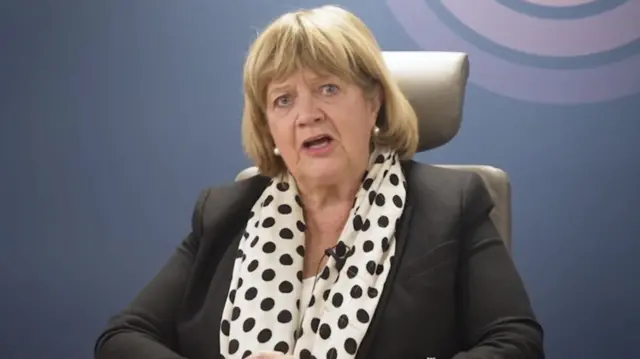England chief medical officer 'wrong' for not abandoning containmentpublished at 17:32 GMT 20 November
 Hugh Pym
Hugh Pym
Health editor
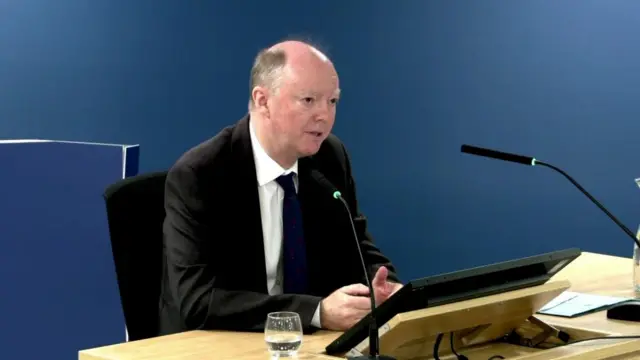 Image source, PA Media
Image source, PA MediaFurther to our earlier post about Dominic Cummings, the report says there was caution about lockdown in the first wave amongst experts on the SAGE committee.
It notes that a policy of trying to contain the virus had failed by 12 March 2020 but that scientific experts did not advise a change because they were unaware of how widely the virus was spreading.
But the report adds that Professor Chris Whitty "did not wish the UK to be the first country to abandon containment" and felt it was best to wait until the World Health Organization had accepted there was a pandemic. This, the report says, "was the wrong approach, given the extent of the spread of the virus within the UK".
